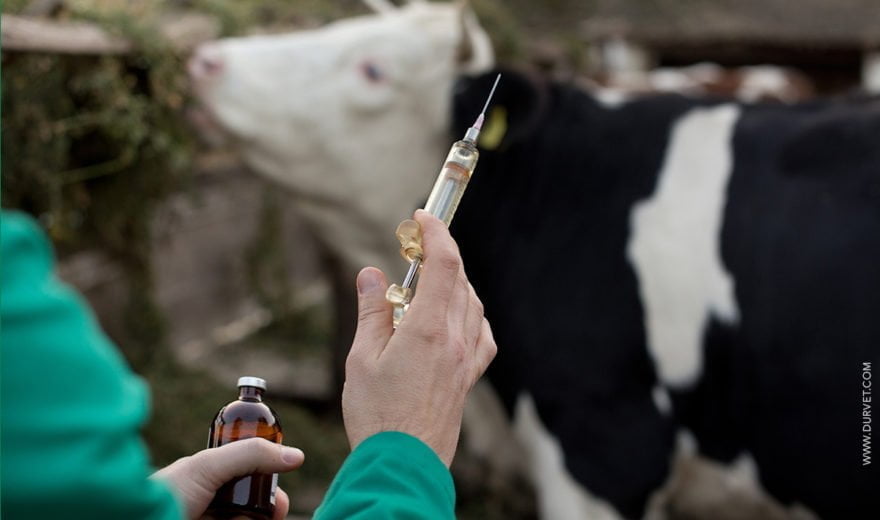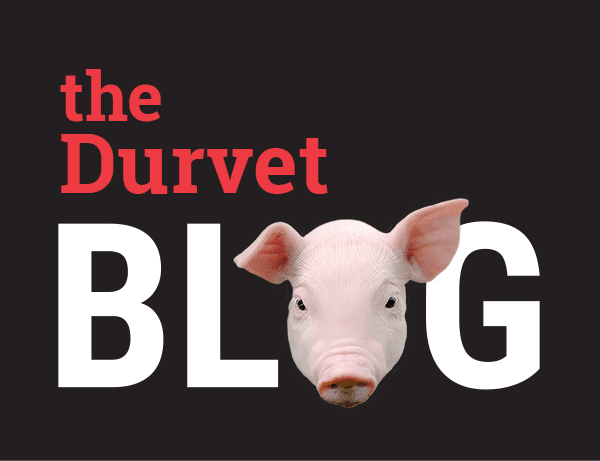
Having a completely healthy herd of livestock doesn't just happen on its own, it requires time and proper care. Vaccinations are an important key to proper animal care and herd health. To protect your animals against diseases, it is not only important to vaccinate at the right time, but with the right product. To ensure that vaccinations are safe and effective, proper vaccine handling and administration are extremely important. Inadequate handling of a vaccine can not only reduce the efficacy, but also cause harm and adverse effects to animals or and create wasted money and vaccines.
When buying vaccines for your livestock, purchase from a reputable source with high quality vaccines. Consult with your veterinarian prior to purchasing vaccines to determine herd health program and what vaccinations are necessary for your operation and area. Most vaccines require refrigeration and should never be allowed to warm to room temperature or freeze. Vaccine components may degrade and become ineffective if stored inappropriately. Before planning vaccinations, become familiar with vaccine labels and instructions to avoid timing errors. Vaccines should also be protected from prolonged ultraviolet light exposure.
Tips for maintaining correct storage temperatures:
- Unless otherwise stated on the label, vaccines should be refrigerated and kept at 2-8° C
- Ensure vaccine shipments are planned so that delivery occurs during the store's open hours, and not during weekends or holidays
- Place a thermometer inside the vaccine refrigerator and monitor the temperature regularly
- Allow space between refrigerated goods for better air circulation to maintain target temperature
- Secure/lock the thermostat so it is not accidentally adjusted
Before starting vaccinations, check your equipment for hygiene and efficacy. If it requires a specialty gun, use the correct model and practice using it before administering to your animals. Read the label carefully and check the vaccine is within its expiratory date. Veterinarians and animal owners should be prepared for Suspected Adverse Drug Events (SADEs) after the use of vaccines.
During the vaccination process, vaccines should still be maintained at a proper temperature. It is recommended to use an insulated bag cooled with ice packs while vaccines are in transit. Place a thermometer in your vaccine pack to monitor the temperature and ensure cold chain effectiveness. Be careful not to freeze the vaccines in the process.
Be sure that all instruments being used are clean and not contaminated. The risk of contamination is much higher in wet conditions. Do not sterilize needles or disinfect skin before vaccination with live vaccines as the disinfectant may destroy the vaccine. They should be handled aseptically with clean hands and avoid contact with unsterile surfaces.
Needle Tips:
- Carefully select needle size based on site of injection, age and condition of animal and viscosity of the product
- Use a new needle at the start of each vaccination event
- Never straighten or reuse a damaged needle
- Change needle every 10-20 animals, or sooner if it is contaminated, bent or damaged
- For subcutaneous vaccines, use the shortest needle possible
- Shake vaccine packs regularly and gently
Administering the correct dose to the correct site is equally as important as keeping it the correct temperature. If a vaccine is administered into valuable parts of the animal, it could cause abscesses or lumps resulting in carcass downgrading. It is recommended to administer vaccines to the anterior third of the animal's neck unless otherwise stated on the label. Ensure animals are properly restrained in a chute to facilitate correct placement of the vaccine. If administering multiple vaccines at once, be sure to space injections so the vaccines do not mix in the animal. Ideally, choose injection sites that allow each vaccine to be processed by a different lymph node (ex. when two vaccines are used, administer vaccines on different sides of the neck). Vaccination sites should be noted in case an adverse reaction occurs.
Animals who are stressed or immunocompromised should avoid being vaccinated. An animal that is stressed by late pregnancy, heat or other health conditions will reduce the overall immune response and increase the risk of adverse events.
After vaccinations are complete, you should dispose of needles in sharps containers and clean vaccination guns. If there were any adverse drug events, they should be reported to the registrant.
Cleaning Recommendations:
- Follow vaccine gun manufacturer instructions on vaccine gun cleaning and maintenance
- After use, vaccination guns should be dismantled, rinsed and cleaned with warm water as soon as possible
- Use mild dish soap & warm water to clean equipment. Rinse thoroughly as detergent residues may interfere with vaccine
- Some vaccine guns require boiling for 10 minutes to sterilize (read manufacturers directions first)
- Discard draw off tube and use a new one with each new vaccine pack
- Boiled applicators and tubes must be allowed to cool to room temperature
- Some applicators should be discarded at the end of each season's use to reduce the risk of contamination
Sources: Zoetis Vaccine Handling Guide, PennState Extension

 BACK TO MAIN BLOG
BACK TO MAIN BLOG 
Comment